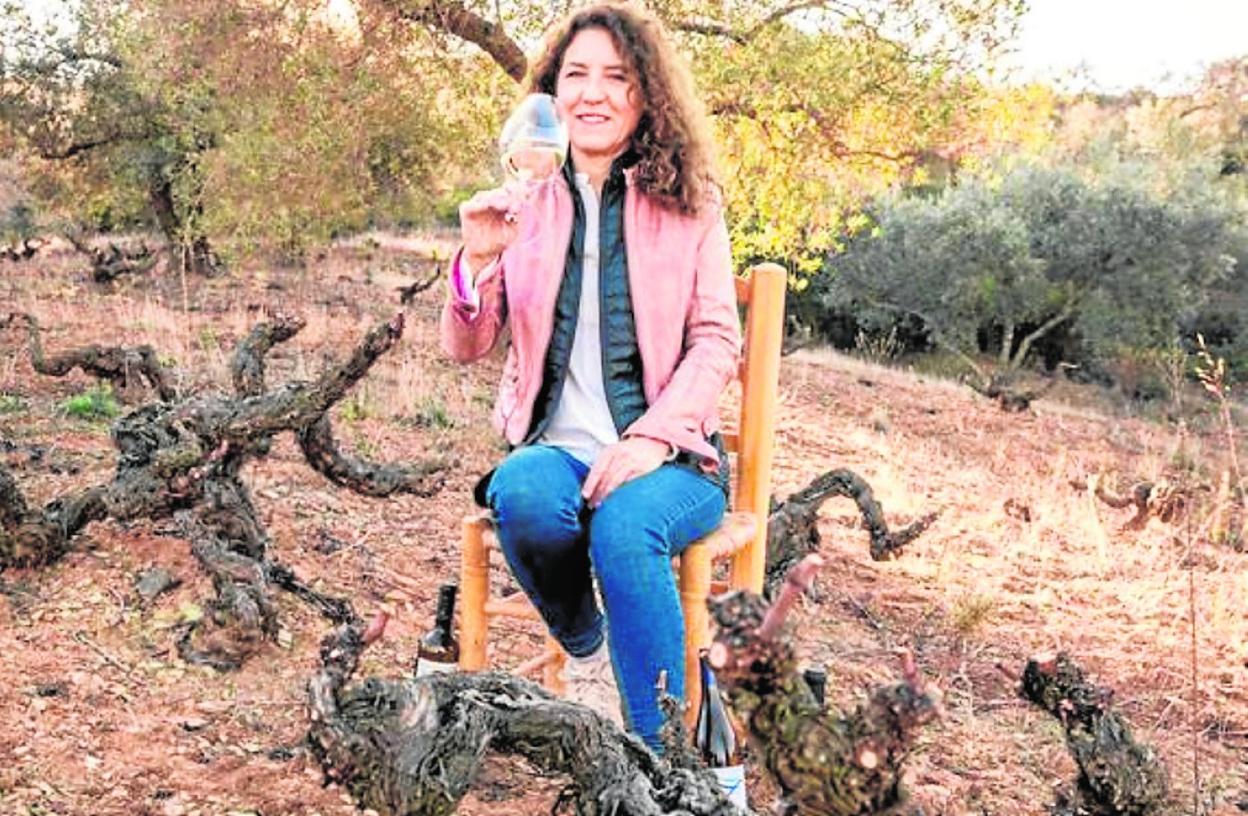

Sections
Highlight

ESPERANZA PELÁEZ
MALAGA.
Friday, 11 February 2022, 16:39
Before the phylloxera plague, one seventh of the province (around 120,000 hectares) was planted with vines. Today there are around 4,000 hectares.
Before 1878, the Montes was the cradle of the most renowned Malaga wines with Pedro Ximénez the king. Victoria Ordóñez, a winemaker committed to its recovery, recalls, "It was mentioned for the first time in Malaga in 1540, with the old name of Pero Ximén, which is the one I prefer to use."
The name of the grape gave rise to numerous theories about its origin. A DNA study by the Julius Kühn Institute showed that it is related to the grapes introduced by the Arabs in Al Andalus.
Pedro Ximénez is a grape for dry and hot climates. Small, pale and with fine, transparent skin, it contains lots of sugar. Grown on the flat it develops a low acidity although it evolves tremendously after aging, producing Málaga D.O. wines such as pajarete, sweet Malaga, dry white wines such as Montes, añejos and trasañejos, sweet and dry. And in Montilla Moriles, finos, amontillados, olorosos, palo cortados and sweet PX (also in Jerez).
Victoria Ordóñez began her search for the old vineyards on the north face of the Cerro Santo Pitar, at high altitudes where references to the old variety said the best wines came from. She finally located a vineyard and started producing Voladeros. "We didn't know the formula, but we did know that it was a still white wine, with no alcohol added. When I tasted it, I realised the exceptional quality of the 'terroir' of the Montes de Málaga. These are wines that are naturally very mineral, complex, elegant, fresh. They do not need manipulation to shine," she explained.
"We now manage about 18 hectares of vineyard with more than 30 owners. Very little and at the same time a lot, because we are making a product that is so new to the public that there is almost no demand for it. So when the pandemic arrived, I thought: What now? Fortunately, the high-end and mid-range sommeliers are enthusiastic about the wines, and that encourages me."
"In the Montes de Málaga, the combination of mineral soils and altitudes that delay ripening, totally change the profile of the musts," says Moreno Ferreiro, secretary of the D.O. Málaga Regulatory Council.
"Because of the altitude, the steep slopes, the difficulty of road communication and the chaotic nature of an ancestral vineyard, viticulture in the Montes de Málaga is not easy - like Robinson Crusoe you have to have tenacity, and Victoria Ordóñez has it," he said.
Publicidad
Publicidad
Publicidad
Publicidad
Esta funcionalidad es exclusiva para registrados.
Reporta un error en esta noticia

Debido a un error no hemos podido dar de alta tu suscripción.
Por favor, ponte en contacto con Atención al Cliente.

¡Bienvenido a SURINENGLISH!

Tu suscripción con Google se ha realizado correctamente, pero ya tenías otra suscripción activa en SURINENGLISH.
Déjanos tus datos y nos pondremos en contacto contigo para analizar tu caso

¡Tu suscripción con Google se ha realizado correctamente!
La compra se ha asociado al siguiente email
Comentar es una ventaja exclusiva para registrados
¿Ya eres registrado?
Inicia sesiónNecesitas ser suscriptor para poder votar.